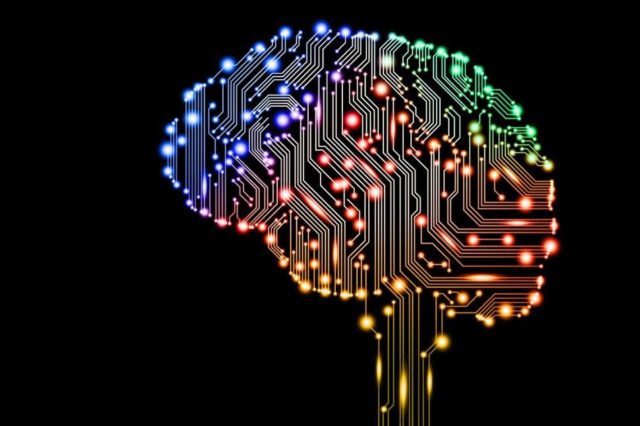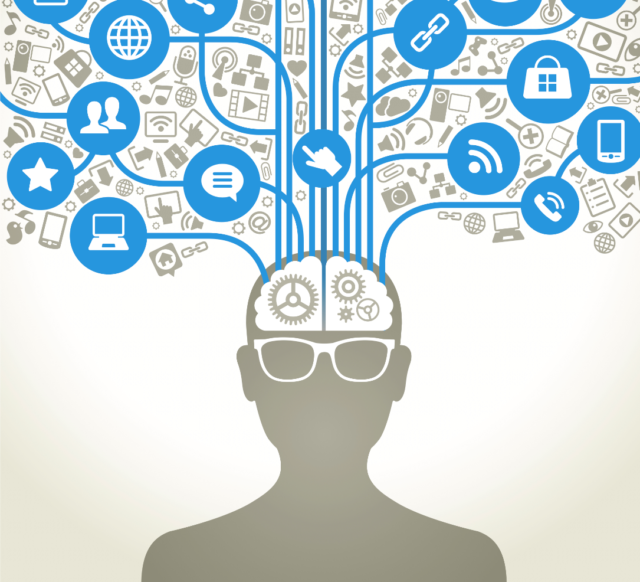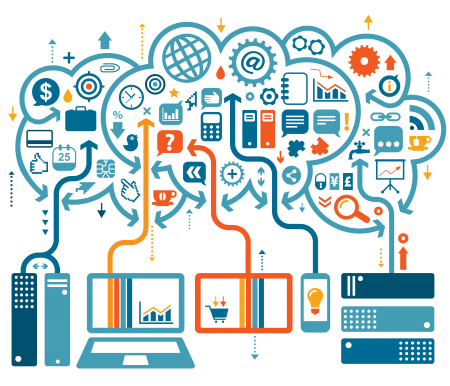The more I reflect on the recent breakthrough in machine learning and deep learning algorithms, the more I am convinced that we are moving towards a smarter future for software.

For many years now I have been writing about the need to develop a better artificial intelligence system for the software we use. It seems ridiculous that my smartphone knows so little and does not act on my behalf. If I'm in a meeting, then all calls need to be transferred to voicemail or automatically sent a message to the caller. If I am late for a meeting, then it is necessary to notify those with whom I am meeting by means of the same text message or by e-mail, indicating the approximate time of my arrival, taking into account the data already available to the smartphone about my location, about the situation on the road and the time to the point destination. When it comes to assessing the level of artificial intelligence, our smartphones are not really 'smart'. This will change soon.
The most modern software platforms such as iOS and Android are constantly adding elements of machine learning, giving developers greater access to the platform 'brains'. There are more ways for the software community to leverage platform APIs and progress in deep learning to deliver new, more valuable user experiences.

For some time now, my friend Benedict Evans has quoted Eric Raymond as saying that “… a computer should not prompt the user for information that it can automatically determine, copy or set logically.” But for an incredibly long time, computers have been doing just that when it comes to AI and machine learning. The smartphone never 'asks' me for my location. He receives this information through the built-in GPS. The smartphone also has full access to my calendar, so it understands what I am doing and where I am. The key point is that we have reached a peak: computers no longer need a large number of queries, they can automatically detect, copy and independently establish certain facts. This is a major innovation that opens the door to an era of computing with a strong focus on artificial intelligence.
Collective and personal collection of information
One of the most interesting aspects of this topic for me is the distinction between 'collective' and 'individual machine learning'. Most people who think about the topic do not see the difference between these concepts. It must be recognized that the main method of machine learning is the collective collection of information or 'big data' collected from a significant number of people (maps, visual recognition of a picture for general knowledge about the image, etc.). We have yet to learn more about machine / deep learning / AI learning as computers begin to study users more closely.
You can clearly define a list of companies that will focus on such methods of obtaining data. Google wants to become the most advanced collector of information possible. Their strategy seems to involve less emphasis on specific and private details about users in order to try to gather enough information to adequately answer search queries. I believe that this is one of the reasons why Google is not working on creating an assistant with a Siri / Cortana / Alexa style name, with which the user is prompted to start a kind of relationship. Instead, Google allows others to focus on their own AI variations and use their datasets to keep these personal assistants running. On the other hand, Apple, Amazon and Microsoft try to 'peer' at each user and create tools for deeper integration with them, thereby forcing them to communicate more and more private information about themselves to their personal agents. It's all about trust and sometimes the companies mentioned can boast more loyalty and trust than Google. Again, Google may be aware of these developments and are not focused on this at this stage.

In conversations with industry representatives who create and develop products in this area, I constantly push people to understand that they [products] will not be the only solution for all occasions, and it will not be so that the winner will claim the entire market. The fact that I 'hired' Siri as a personal assistant and provided her with the details of my private life does not mean that I cannot use similar software from Google, Amazon, Microsoft or many other developers. In fact, it would be rather foolish for any of the companies to shield their 'assistant' from interacting with such solutions. The ideal solution would be some common standard so that these 'helpers' can exchange information. Ultimately, of course, users will only use one assistant. Few companies can really get involved in this battle.
I believe that companies involved in the development of tools for machine / deep / AI learning, at this stage, should focus each on its own area and bring it to the maximum development limit. For example, Amazon could easily become an expert in commerce, Google in search, Microsoft in business, and I would use Siri in private. In China, the situation is the same: Baidu – search, Alibaba – commerce, etc. All of these AI engines need to work together to minimize user requests and, as a result, get more data.
We don't want to spend more and more time with our devices. The less we tell them, the better. This will allow us to get more time for self-improvement in what people will always be better than machines. We are moving in this direction.
Original material, author – Ben Bazharin
So far, deep learning is present in our online life in the form of harmless (?) Images created by Google Deep Dream or processed through Prisma. However, the scenario described in this material is quite likely, in which computers and smartphones will increasingly 'cooperate' with AI, as well as machine learning tools to obtain reliable and detailed information about the user. Moreover, judging by the facts from the article, the manufacturing companies themselves are confidently developing this direction.
It is difficult to say whether it is worthwhile for those who are especially careful and striving for one hundred percent preservation of their private life to make foil hats again, from the outside, such search investigations no longer look like something out of the ordinary, at least there is nothing here that does not make Google , Apple and other major players. Quite an interesting opinion about the 'collaboration' between personal assistants: of course, the implementation seems dubious, but still, why not work with several assistants depending on the areas of your activity. And yes, it would be time for both computers and smartphones to become more independent in the process of analyzing and obtaining information about us. Let there be some line of permissibility, in my opinion, this will speed up the process of our interaction with 'smart' devices. Will you entrust such information about yourself to artificial intelligence?
PS: Imperceptibly for me, the Gazebo reached the hundredth issue. Once again, I want to thank the AMR readers for their attention, support and adequate criticism in case of any errors or inaccuracies in the materials, as well as the MR editors for the opportunity to do their hobby with benefit. Thanks!
